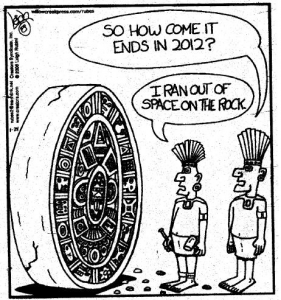Monthly Archives: October 2012
Week Seven: Finnish Reform and Thailand’s Condoms
The first article was about Mr. Mechai Viravaidya, a front-runner in the areas of public health, education, and community development in Thailand. Viravaidya started a family planning initiative (through use of contraceptives) in an attempt to curve poverty and sexually transmitted diseases. The majority of this article was about how condoms are now commonly found and used in Thailand, and the significant results from this reform movement. Family structure has drastically changed over the past 40 years. On average, families in Thailand used to have seven kids; today, most families have one or two. Viravaidya believes that “those who are at the core of the problem have to be the solution”. Because Thailand only had 9 doctors for every million citizens, normal people helped spread awareness, leading to the overall success of their reforms.
The next two articles were about educational reform in Finland. In contrast to the United States, Finland heavily emphasizes small class size, laboratory instruction, longer recess, a more significant role in the arts, and (arguably most importantly), limited standardized testing. The United States uses standardized testing regularly to compare schools in different parts of the nation and—possibly in the near future—to set salaries for teachers. Finnish teachers are shocked by this, most likely because their system is structured around a sense of trust; teachers in Finland go through a rigorous academic program to become teachers and are seen as highly respectable “professionals” in their workplace. Finnish educators also receive a higher salary for their work. When comparing the PISA scores of both the United States and Finland, it seems that the United States should consider some educational reform.
Okay so I read two articles on Finnish educational reform and one on condoms; what’s the connection? My guess is that the United States could be taking lessons from other countries to better itself on a global scale. The three articles had to do with successful reforms in other nations, so maybe that’s our cue to do the same. How should we go about this? According to the articles I say we need to do two things: 1. Follow the successful example of other nations, and 2. Be the solution to our own problems. The United States needs to swallow its over-glorified sense of nationalism and look around: great things are happening in other countries, too; we aren’t the only ones who can influence the world in a positive manner. I feel that the United States needs to look at the reforms of Thailand and Finland and make a change if it’s for the better. The best countries are those that see their problems and address them accordingly.
Week Six: Sexual Consent
This short video was on sexual consent. It was very humorous and started with a guy that pulled out a legal agreement for the girl to sign before they decided to do anything sexual. The girl brought in a lawyer to look through the document. Then the boy’s lawyer started negotiating for “her client”. After the lawyers came to an agreement, another girl walks in and asks if she should get her lawyer too.
This was a really funny and clever way to bring up a more serious point: how should couples bring up sexual consent? Asking one what the other is okay doing sexually may be very awkward for some people, and in real life we can’t bring lawyers to the table to negotiate for us. It was very responsible of both the boy and girl to talk about what they were comfortable doing with each other. However, in real life third parties don’t usually get involved. So what’s the right thing for couples to do then? I feel like this video is a fun way to get people questioning their own methods of discussion when dealing with sexual consent.
Week Five: Creativity
This interview was about how kids are losing creativity in the current school systems. The author makes some very good points: kids starting school around now won’t retire for another 60 years; we have no clue what the future is going to look like, so creativity is very important for them to learn how to solve the future’s diverse problems. Because of this, the speaker believes that creativity is as important as any subject taught in the schools.
The speaker defines creativity as, “the process of having original ideas that have value”. He believes that everything else that we do has happened because of this power to imagine and create. He says that it is, “absolutely at the heart of what it is to be a human being”. He also cautions that it is not just about the arts either; creativity can be found in any subject.
Those that aren’t ready to be wrong will never come up with anything original. Kids are not frightened of being wrong, but by the time they reach adulthood they have lost much of this feeling. They are afraid to be wrong because others might judge them. And our educational system is working in the same way; we are taught not to make mistakes, so people are taught out of their creativity. We need to redefine learning and teach in ways where there isn’t just one right answer.
I really liked this selection. The dialogue was a nice change in pace, and the speaker had some really interesting ideas. I feel that creativity is also important in the real world and schools need to start acting like it. I like how he supported this idea with the business people who wanted creative employees. But this isn’t the only place where creativity is needed; in my opinion, just about every job should have some creativity in it. Creativity is more than just a way to express oneself; it’s about generating new ideas and solutions that have the potential to change the future.

